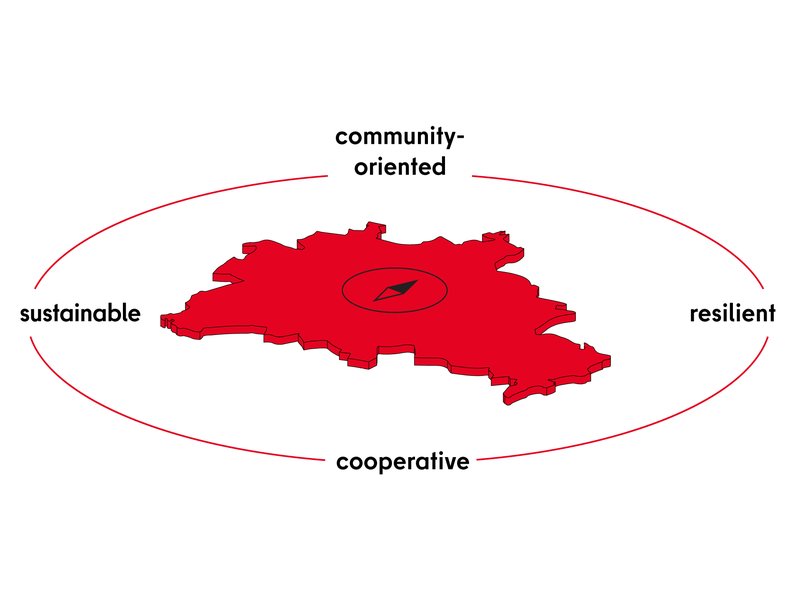The basic requirement for a sustainable city is the protection of its resources and natural basis of existence so that future generations will continue to enjoy an intact and livable environment. Achieving sustainability is a cross-sectional task that concerns all policy areas of the Berlin Senate. For its realization, digitalization must be used with the inclusion of local, regional and global perspectives: this involves reducing urban emissions, resource consumption, and the acceleration of transformation processes in the areas of electricity, heat, food and mobility, and lastly – and importantly – the sustainable development and promotion of economic ecosystems that favor innovative and future-proof business models. In doing so, technology itself must be made sustainable, while data-driven action and artificial intelligence* (AI) are to be used sensibly and free of the risk of discrimination for the sustainable development of the city. Gender aspects must always be taken into account when implementing climate protection measures.
Values Compass for Berlin as a digital city

Which values form the basis for the strategy?
... example measure Smart Water
The Smart Water measure is primarily oriented towards the guiding principles of the sustainable and resilient city. Sustainable use of water resources and urban greenery is promoted. The city is to become more resilient and adaptable to the impacts of the climate crisis and related extreme events in the future such as heavy rainfall.
You can find these and other contents in the Gemeinsam Digital: Berlin strategy paper.
Download it here: strategy Gemeinsam Digital Berlin
Click here for the annex: annex to the strategy

